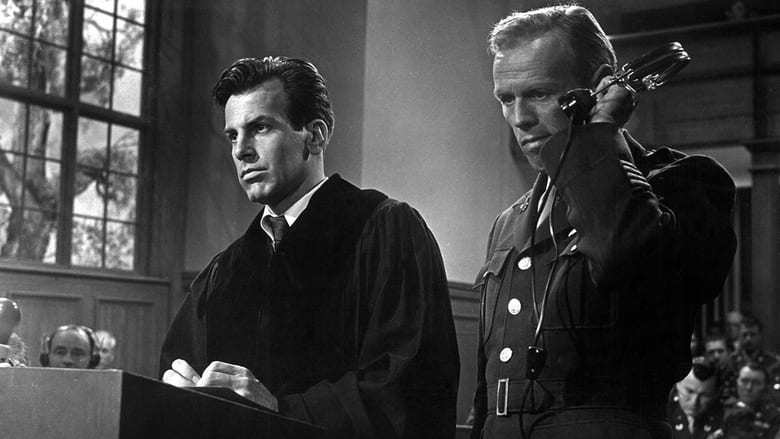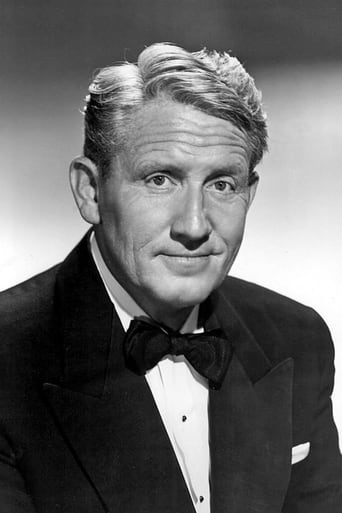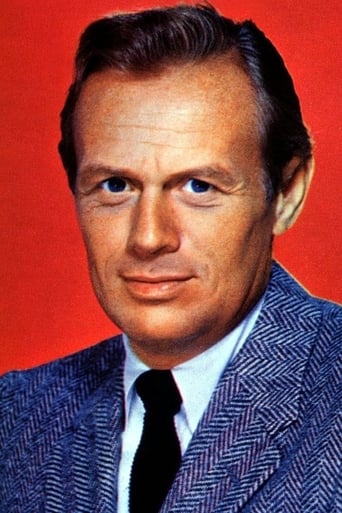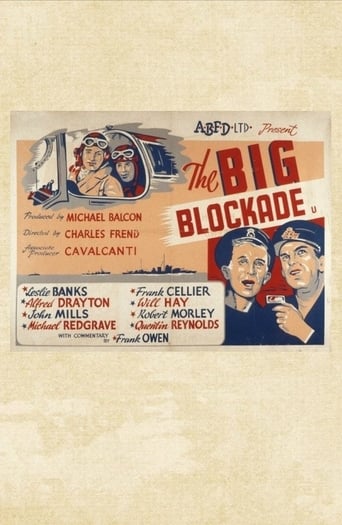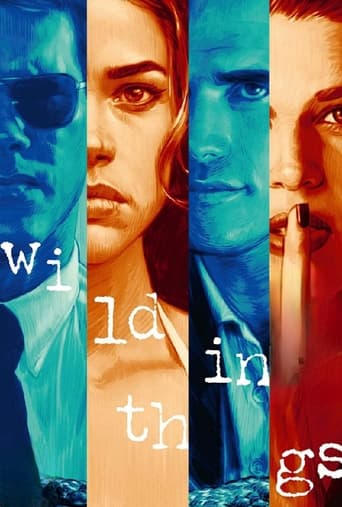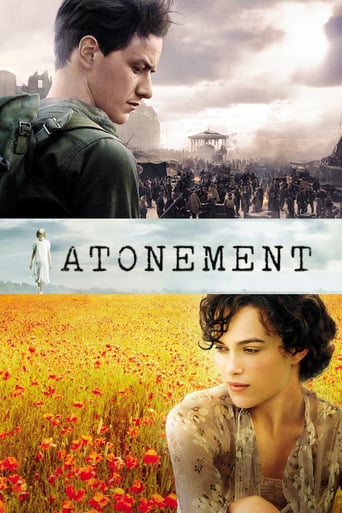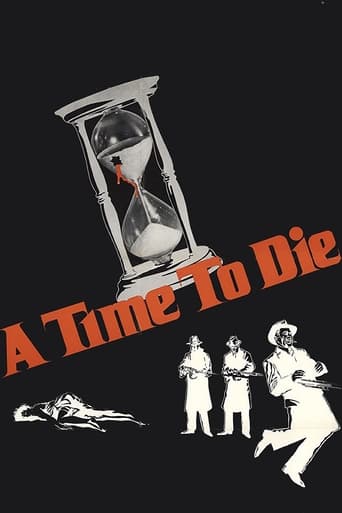Judgment at Nuremberg (1961)
In 1947, four German judges who served on the bench during the Nazi regime face a military tribunal to answer charges of crimes against humanity. Chief Justice Haywood hears evidence and testimony not only from lead defendant Ernst Janning and his defense attorney Hans Rolfe, but also from the widow of a Nazi general, an idealistic U.S. Army captain and reluctant witness Irene Wallner.
Watch Trailer
Cast


Similar titles
Reviews
In 1948, an American court in occupied Germany tries four Nazi judges for war crimes. The biggest problem with 'Judgment at Nuremberg' is that it takes completely place inside a court room and as fun as that might sound it really isn't and just picture 'A Few Good Men' inside there for 3 hours now it wouldn't be the epic film that it turned out to be now would it? The acting was alright and so was the cinematography and direction but other than that? It was way long and just needed alot of scenes to cut out like fifty of them maybe even more. (5/10)
This is a heavy one, so be prepared. If you've seen any similar films, either about Nazi Germany or Apartheid South Africa, you'll know what to expect, but if you haven't, I'll give you a little background about the plot. Judgement at Nuremberg is a courtroom drama based on the real Nuremberg trials in 1947, where four Germans stand trial for their role in the atrocities of WW2. The plot would have been enough to make this film a famous classic, but in addition to the very heavy and popular subject matter, the all-star cast makes it a must-see for pretty much everyone:Spencer Tracy plays the judge, Burt Lancaster is one of the defendants, Richard Widmark is the prosecutor, Maximilian Schell is the defense attorney, and Judy Garland, Marlene Dietrich, Montgomery Clift, and William Shatner join the courtroom action. Everyone is given powerful monologues to recite. Director Stanley Kramer must have given his actors fantastic direction, because they're all in top form as they cry, argue, judge, defend, and confess. Maximilian Schell took home the Best Actor Oscar in 1962, and the film garnered another nine nominations that year.
Outstanding film. Star-studded with several fantastic performances. Highly emotional given the subject matter, but presented in a very intelligent, balanced way. I was struck at once by that, and by how well director Stanley Kramer gives us both sides of the argument – and avoids simply paying lip service to the defense of the German judges on trial. Maximilian Schell is brilliant as the defense attorney, well worthy of his Oscar, and is forceful and compelling in his arguments. There are also so many brilliant scenes. Spencer Tracy walking in the empty arena where the Nazi rallies were held, with Kramer focusing on the dais from which Hitler spoke. The testimony of Montgomery Clift and Judy Garland, both of whom are outstanding and should have gotten Oscars. Burt Lancaster in the role of one of the German judges, the one tortured by his complicity, knowing he and others are guilty. The devastating real film clips from the concentration camps, which are still spine tingling despite all we 'know' or have been exposed to. Marlene Dietrich as the German general's wife, haunted but expressing the German viewpoint, one time while people are singing over drinks. Her night stroll with Tracy, as she explains the words to one song, is touching. It just seemed like there was just one powerhouse scene after another, and the film did not seem long at all at three hours. Heck, you've even got Werner Klemperer and William Shatner before they would become Colonel Klink and Captain Kirk! In this film, the acting, the script, and the direction are all brilliant, and in harmony with one another.As for the trial itself, the defense argument was along these lines: they were judges (and therefore interpreters), not makers of law. They didn't know about the atrocities in the concentration camps. At least one of them saved or helped many by staying in their roles and doing the best they could under the heavy hand of the Third Reich. They were patriots, saw improvement in the country when Hitler took power, but did not know how far he would go. If you were going to convict these judges, you would have to convict many more Germans (and where would it stop?). The Americans themselves practiced Eugenics and killed thousands and thousands of innocents at Hiroshima and Nagasaki. The one small weakness I found was that the defense never makes the simple argument that these judges were forced to do what they did, just as countless others in Germany were, and would have been imprisoned or killed themselves had they not complied. Anyone who's lived under a totalitarian regime may understand, or at least empathize.I'm not saying I bought into these arguments or that one should be an apologist to Nazis, but the fact that the film presented such a strong defense was thought provoking. How fantastic is it that Spencer Tracy plays his character the way he does – simply pursuing the facts, and in a quiet, thoughtful way. It's the best of humanity. How heartbreaking is Burt Lancaster's character, admitting they knew, admitting their guilt, knowing that what happened was horrible and that they were wrong, and yet seeking Tracy's understanding in that scene in the jail cell at the end – intellectual to intellectual - and being rebuked. Even a single life taken unjustly was wrong. Had the Axis won the war, I don't know which Americans would have been on trial for war crimes for the fire bombings of Dresden and Tokyo, or for dropping the atomic bombs, but the film makes one think, even for a war when things were seemingly as black and white as they could ever be. The particulars of this trial were fictionalized, but it's representative of what really occurred, and it transports you into events 70 years ago which seem so unreal today – and yet are so vitally important to understand, and remember.
With a star studded cast and a very long running time, this is a philosophical but fictionalised account of the Nuremberg trials inspired by true events.Once the more infamous Nazis have been tried and prosecuted, it is the turn for the more lesser known suspects. Spencer Tracy as lead Judge Dan Haywood presides over the trial of four judges who have been charged with war crimes as they implemented the laws of the Nazi regime. These include enforcing laws of racial purity and sterilising undesirables such as the feeble minded.Burt Lancaster plays a renowned jurist Ernst Janning whose activities baffle Dan Haywood as his work on the law is so well respected.In the background of rising tensions between the Americans and the Russians with the developing Cold War, there is a ferocious courtroom battle between prosecuting attorney, Colonel Lawson (Richard Widmark) and Hans Rolfe (Maximilian Schell) who relentlessly badger the witnesses.Lawson who liberated one of the concentration camps holds the entire nation responsible for the atrocities, yet his own actions at the courtroom are cynical. Rolfe is more pragmatic about any other nation trying to claim a moral high ground. As he tells Janning, the Americans dropped a nuclear bomb in Hiroshima that killed countless women and children.Judge Haywood tries to understand himself about the German people during the war, he mingles with locals and gets to know a widow, Frau Bertholt played by Marlene Dietrich. Her own husband was executed by the Nuremberg trials but she insists that many Germans had no idea about the holocaust. However Haywood is troubled about the Nazi atrocities, those who were enablers and other who turned a blind eye to it.Director Stanley Kramer keeps this long film enthralling, some of the court cases are vignettes allowing actors such as Montgomery Cliff and Judy Garland to give short memorable performances.Maximilian Schell gets the more emotional role as the defence lawyer and at times he gets to chew the scenery but he also won a best actor Oscar. Burt Lancaster is more restrained as Janning, he hardly speaks for most of the film but his face is solemn and stern. A man who has realised he did wrong by condemning some of his own people to death and now has to pay the price for just following orders.


